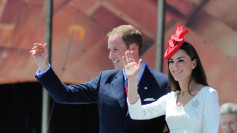The Kremlin on Monday directly accused the United States of orchestrating a deadly missile strike on Crimea, using U.S.-supplied ATACMS missiles, which resulted in the deaths of at least four people and injuries to 151 others. This marks a significant escalation in the ongoing conflict, intensifying tensions between Russia and the West.
The attack on Sevastopol, a city in the Russian-annexed Crimea, has led to severe repercussions, with Moscow summoning U.S. Ambassador Lynne Tracy to formally warn her that retaliation would follow. "You should ask my colleagues in Europe, and above all in Washington, the press secretaries, why their governments are killing Russian children. Just ask them this question," Kremlin spokesman Dmitry Peskov told reporters.
According to Russian officials, two children were among the fatalities, and footage from Russian state television showed scenes of chaos as people fled a beach near Sevastopol. Some of the injured were seen being carried off on sun loungers. Russia claimed that the U.S. had not only supplied the weapons but that U.S. military specialists had programmed and aimed the missiles.
"The United States is waging a hybrid war against Russia and has actually become a party to the conflict," Russia informed Ambassador Tracy, emphasizing that the attack "will not go unpunished. Retaliatory measures will definitely follow." President Vladimir Putin has repeatedly warned of the risks of a broader conflict involving the world's major nuclear powers, yet he maintains that Russia does not seek a direct confrontation with the U.S.-led NATO alliance.
U.S. President Joe Biden has consistently ruled out sending American troops to fight in Ukraine, stating that a direct confrontation between NATO and Russia would equate to World War III. However, the involvement of U.S. weaponry in the conflict has led to heightened accusations from Moscow.
Putin portrays the war in Ukraine as part of a broader struggle against the U.S., which he accuses of ignoring Russia's interests since the Soviet Union's dissolution in 1991 and plotting to divide Russia to seize its natural resources. Western leaders and Ukraine view the conflict as an imperial-style land grab, and while the West denies any intention of destroying Russia, Moscow rejects claims that it aims to invade any NATO member state.
In light of the attack, the Kremlin has signaled that it views the use of U.S. weapons against Russia as a serious escalation. Putin has ordered drills to practice deploying tactical nuclear weapons, suggested deploying conventional missiles within striking distance of the U.S. and its allies, and recently signed a mutual defense pact with North Korea.
While the U.S. prohibits Ukraine from using ATACMS missiles, which have a range of up to 186 miles, against Russian territory, it remains permissible for Ukraine to target Crimea, which Moscow annexed in 2014. The international community largely views Crimea as part of Ukraine, complicating the situation further.
Peskov, reflecting on Putin's earlier statements, hinted at potential Russian responses. "Of course, the involvement of the United States in the fighting, as a result of which peaceful Russians are dying, cannot but have consequences," he stated. "Which ones exactly - time will tell."
This latest development follows Russia's repeated threats to target countries supplying weapons to Ukraine. Moscow has warned that such nations are legitimate military targets. "We see very well who is behind this," Peskov reiterated, emphasizing that the technologically complex missiles used in the attack were guided by American specialists.
President Putin has also suggested that Russia might supply weapons to North Korea in response to the Western arming of Ukraine. He has hinted at the possibility of asymmetric responses, potentially targeting sensitive facilities in Western countries.
Ukrainian officials have defended the strike on Crimea, with Mykhailo Podolyak, a top aide to President Volodymyr Zelensky, describing the peninsula as "a large military camp" containing "hundreds of direct military targets."
The United Nations' human rights monitoring mission in Ukraine reports that at least 10,000 civilians have been killed since Russia's invasion in February 2022, though the actual figure is likely much higher.






